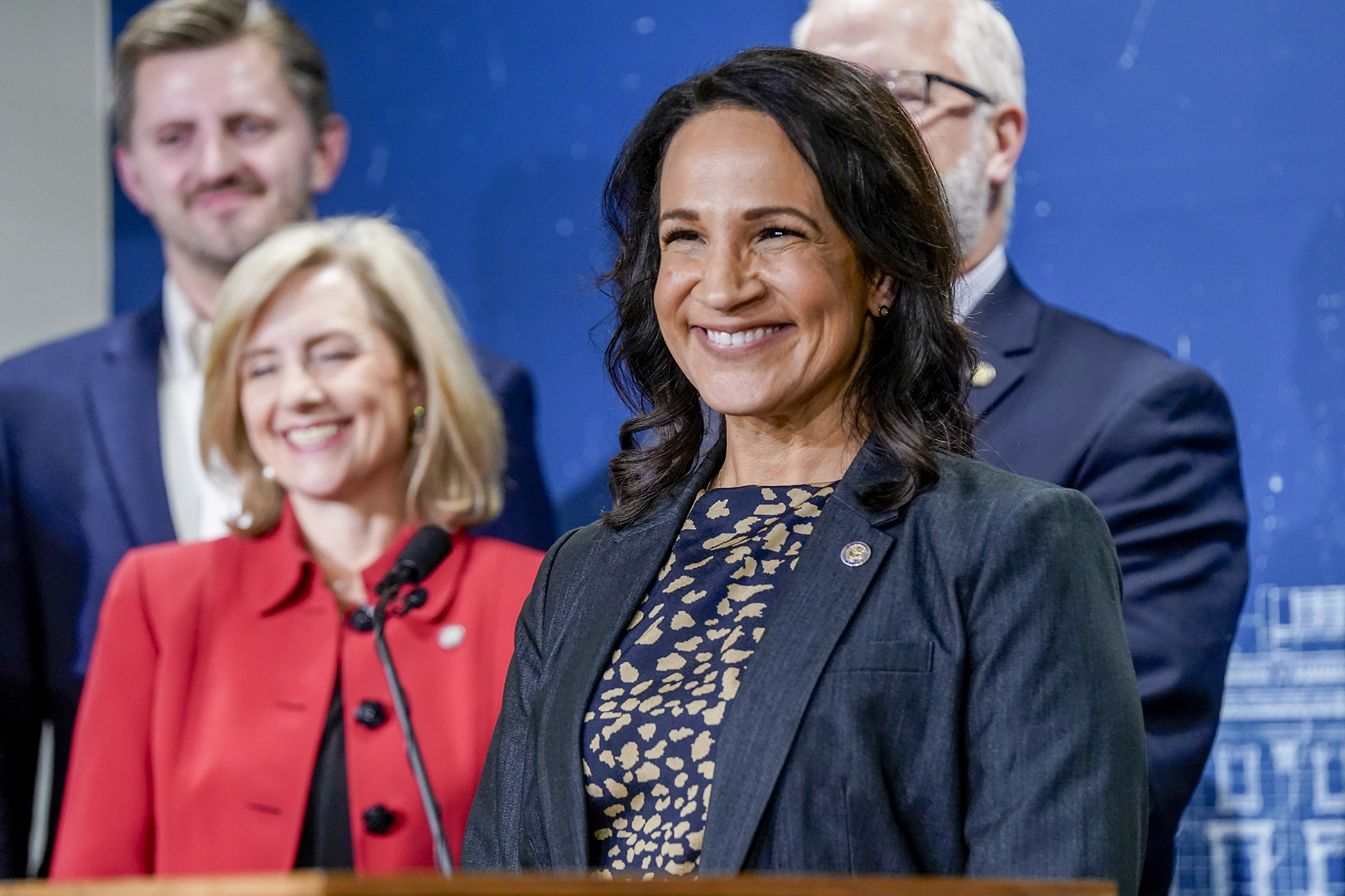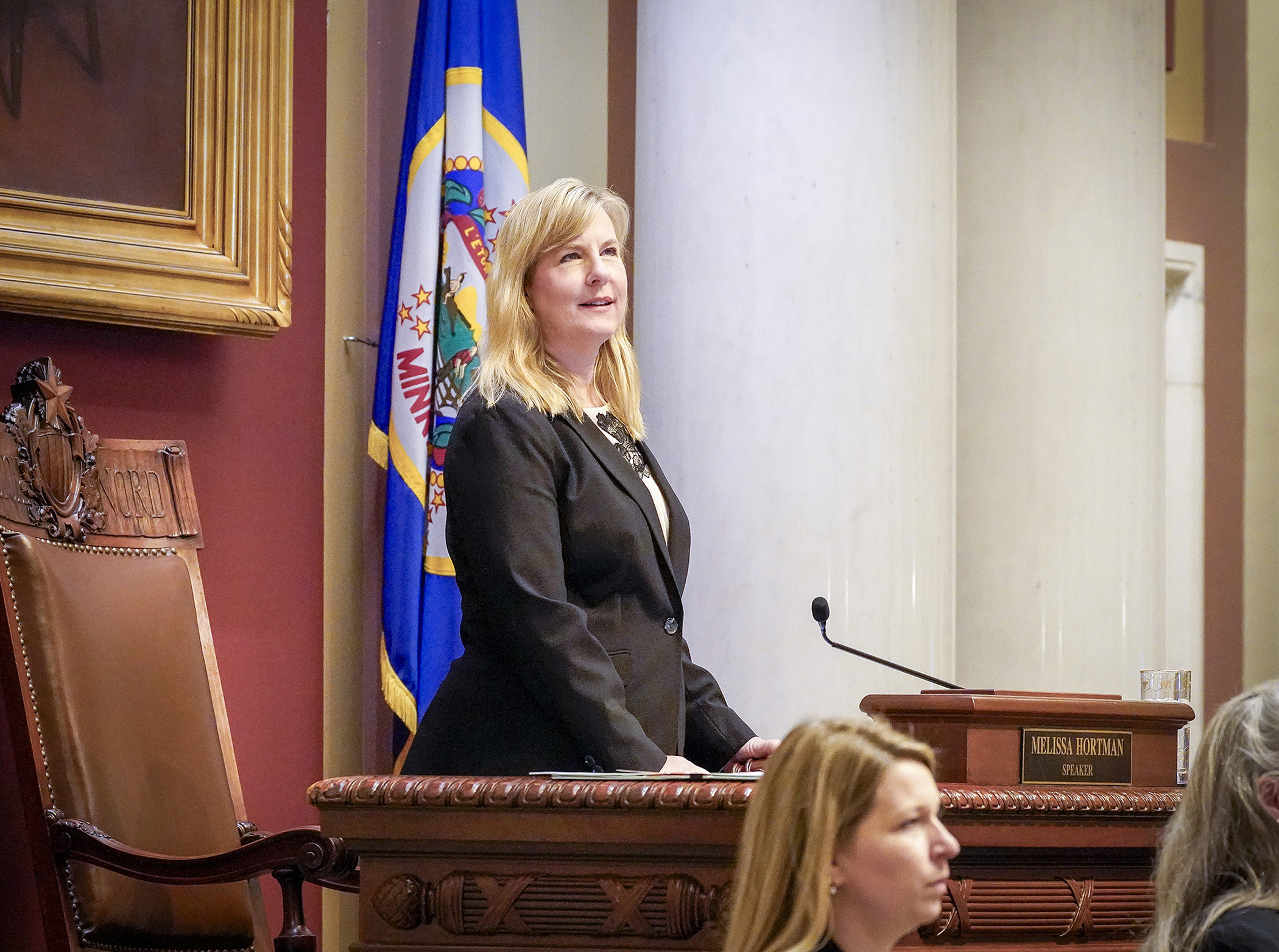Committee approves recognition of some North Dakota permits to carry
The Bureau of Criminal Apprehension currently reviews other states’ permit to carry laws to determine whether they are “substantially similar” to Minnesota’s law, thereby allowing those permits to be valid here.
The Department of Public Safety publishes on its website a list of states that do not have similar governance of permit to carry laws which makes permits issued by those states invalid in Minnesota.
A bill approved as amended Thursday night by the House Public Safety and Crime Prevention Policy and Finance Committee on split-voice vote would amend state law to remove the word “substantially” from the inter-state statutory review statute. It would also prohibit the department from placing Class I carry permits issued by North Dakota on the list. That restriction expires if North Dakota amends its requirements for carry a Class I carry permit after March 18, 2015, and Minnesota officials determine North Dakota’s law is not similar.
HF305 next goes to the House Floor.
Rep. Dan Fabian (R-Roseau), the bill sponsor, said Minnesota and North Dakota once had reciprocity, but the laws have since been found to be dissimilar, including that North Dakota can issue a Class II permit to an 18 year old. In Minnesota a holder must be at least 21.
According to the website of North Dakota Attorney General Wayne Stenehjem, “the licenses are equally valid within North Dakota, but because of the additional testing requirements, the holders of a Class 1 license have reciprocity in many more states than those who have a Class 2 license.”
Rep. Raymond Dehn (DFL-Mpls) expressed displeasure that the bill takes away from Minnesota public safety officials the ability to use their determination, and that they must accept the North Dakota permit no matter what that state’s requirement to get a permit may be. He also said letting the Legislature determine if another state’s requirements are satisfactory would set a precedent.
An amendment to the bill offered by Rep. Jim Newberger (R-Becker) during the committee’s morning meeting — but taken away at the evening gathering — would have also required the BCA to recognize permits from another state if that state’s permit law requires permit-holders to (1) pass a national background check and, if available, other criminal and mental health background checks, and (2) demonstrates “proof of firearm training or proficiency” as a condition to receiving a permit.
 A member of the audience at the March 19 House Public Safety and Crime Prevention Policy and Finance Committee meeting wears a shirt advocating the rights of gun owners. Photo by Paul Battaglia
A member of the audience at the March 19 House Public Safety and Crime Prevention Policy and Finance Committee meeting wears a shirt advocating the rights of gun owners. Photo by Paul Battaglia“The primary focus of this is the North Dakota issue, but one of the added benefits is that it helps to iron out the wrinkles, like many other states have done, to put us on a balanced ground with the rest of the country,” Newberger said.
Joseph Olson, chairman of the Gun Owners Civil Rights Alliance, noted the list of other states whose permit to carry laws “seems to change with commissioners.” Minnesota now recognizes permits from 11 other states; with the bill that number would increase to about 30.
“We’re attempting to have ‘similar’ mean ‘similar’ and leave the details to the other states if they have a background check system or they use the National Instant Criminal Background Check System,” he said. “If they have a proof of firearms training or proficiency standard, we’re not going to another state and tell them how they have to write their laws.”
Speaking on the Newberger amendment, Rep. Debra Hilstrom (DFL-Brooklyn Center) expressed concern that other states have less stringent permit to carry requirements.
“What you’re doing is you’re making it easier for people in other states to carry a gun when it’s harder for Minnesotans to do it,” she said. “If you live in Minnesota, you’ve got to go through all these things to get your permit, but if you live somewhere else we have a lower standard for you to bring a gun to Minnesota.”
 Susan Sheridan Tucker, executive director of the League of Women Voters Minnesota, testifies in opposition to HF305 sponsored by Rep. Dan Fabian, right, which would amend the Minnesota Personal Protection Act. Photo by Paul Battaglia
Susan Sheridan Tucker, executive director of the League of Women Voters Minnesota, testifies in opposition to HF305 sponsored by Rep. Dan Fabian, right, which would amend the Minnesota Personal Protection Act. Photo by Paul BattagliaSusan Sheridan Tucker, executive director of the League of Women Voters Minnesota, was especially concerned about removing the word “substantially” when it comes to ensuring their state permit regulations elsewhere are close to Minnesota.
“We think it’s a significant dilution of Minnesota’s intent to have stronger carry permit laws,” she said.
Representatives from the Public Safety Department also spoke against the Newberger amendment, and Jim Franklin, executive director of the Minnesota Sheriffs’ Association, suggested a working group be created to reach some common ground.
“I think we need to look at what we have in place in Minnesota and complement the people who have done the training,” Franklin said. “With our statistics and what has happened, they’ve done a good job, and I think it’s partly because of the collaboration and the system that we’ve brought together. There’s some very important points on both sides of the equation here.”
A companion, SF328, sponsored by Sen. Kent Eken (DFL-Twin Valley), awaits action by the Senate Judiciary Committee.
Related Articles
Search Session Daily
Advanced Search OptionsPriority Dailies
Demuth named Republican speaker-designate
By HPIS Staff Current House Minority Leader Lisa Demuth (R-Cold Spring) is officially the Republican speaker-designate charged with working with DFL counterparts to get the House organized fo...
Current House Minority Leader Lisa Demuth (R-Cold Spring) is officially the Republican speaker-designate charged with working with DFL counterparts to get the House organized fo...
House DFL selects Hortman as speaker-designate
By Jonathan Mohr House DFLers have again chosen current House Speaker Melissa Hortman (DFL-Brooklyn Park) to lead their caucus amid uncertainty in the aftermath of Tuesday’s election that may ha...
House DFLers have again chosen current House Speaker Melissa Hortman (DFL-Brooklyn Park) to lead their caucus amid uncertainty in the aftermath of Tuesday’s election that may ha...
